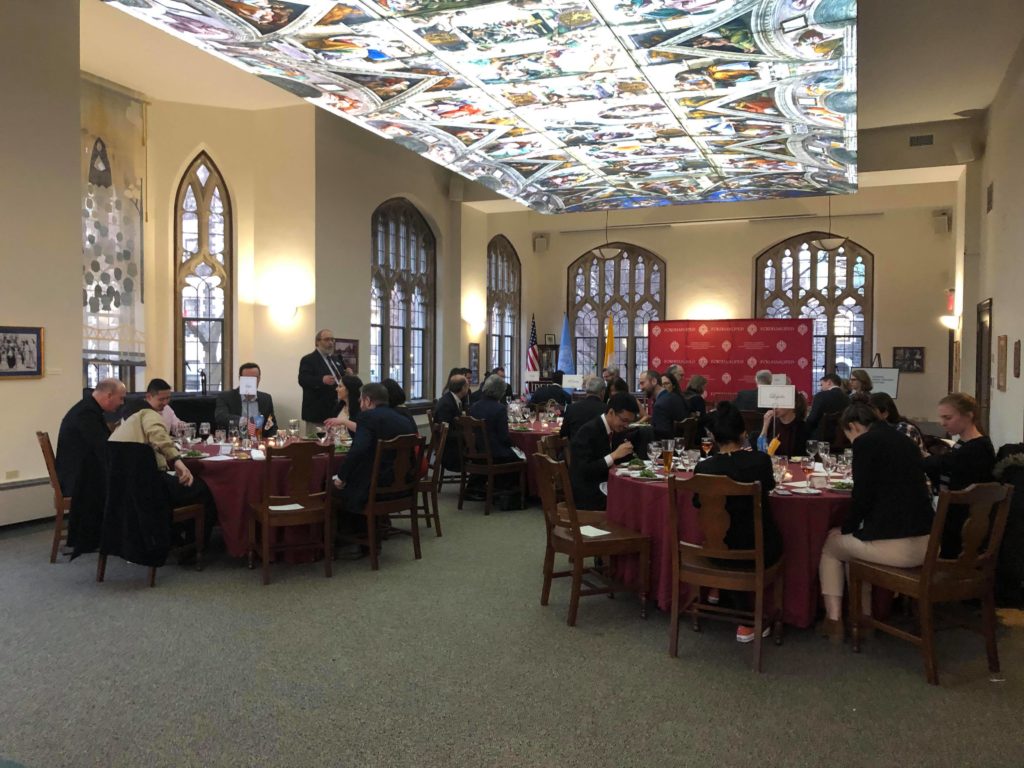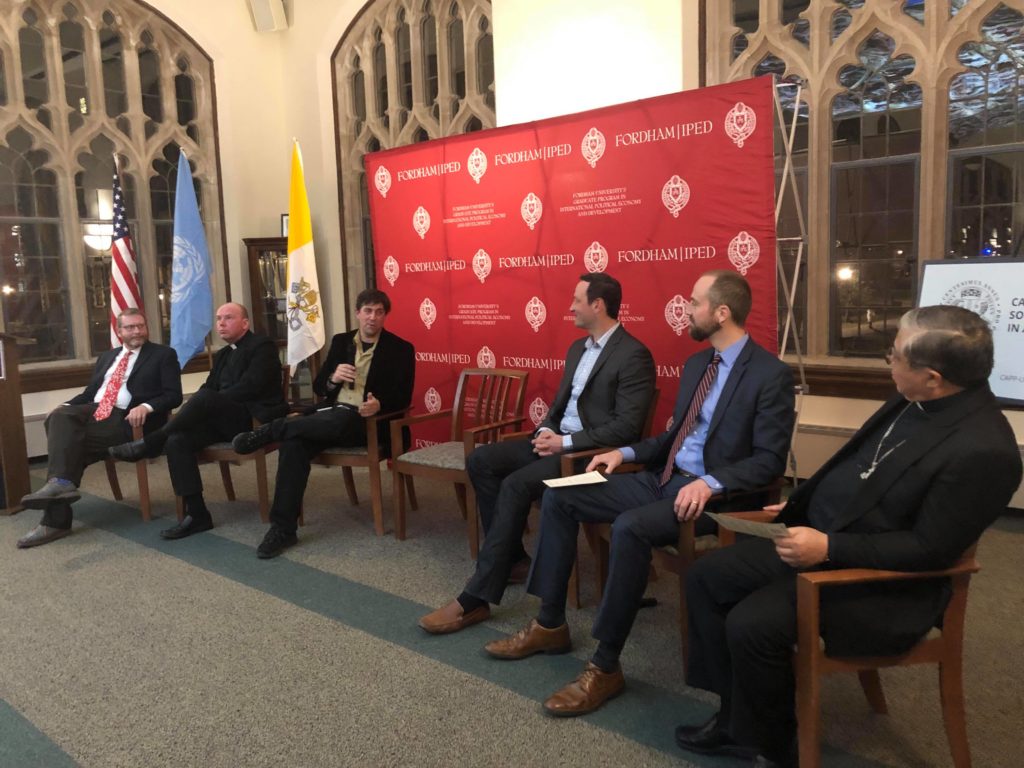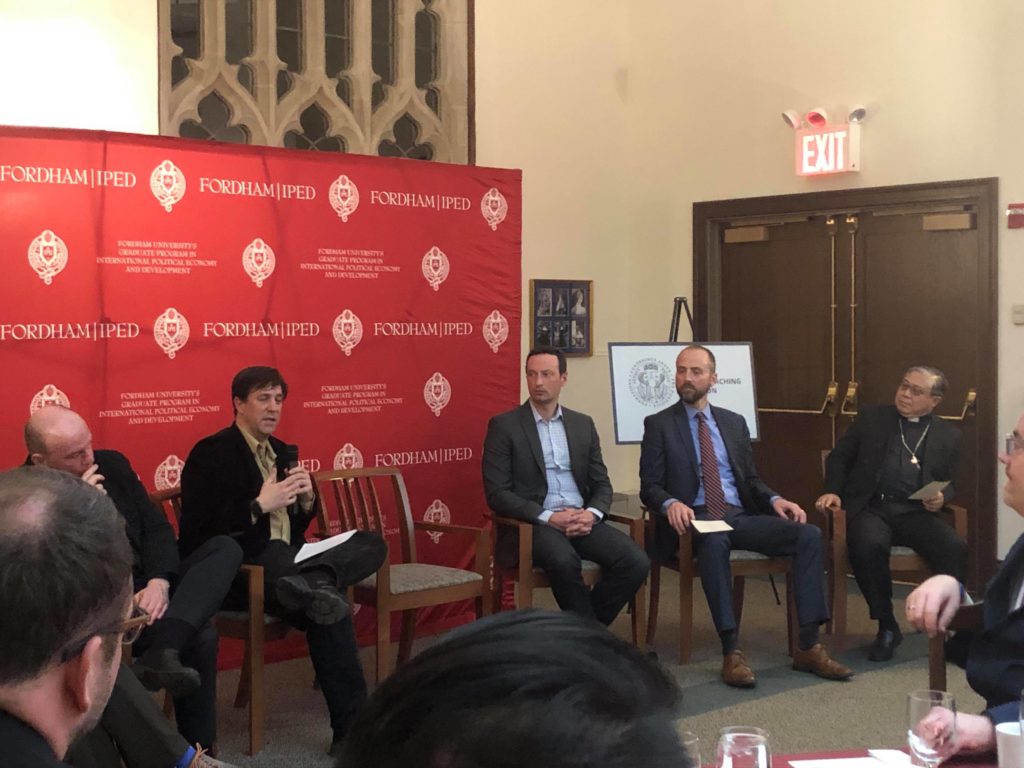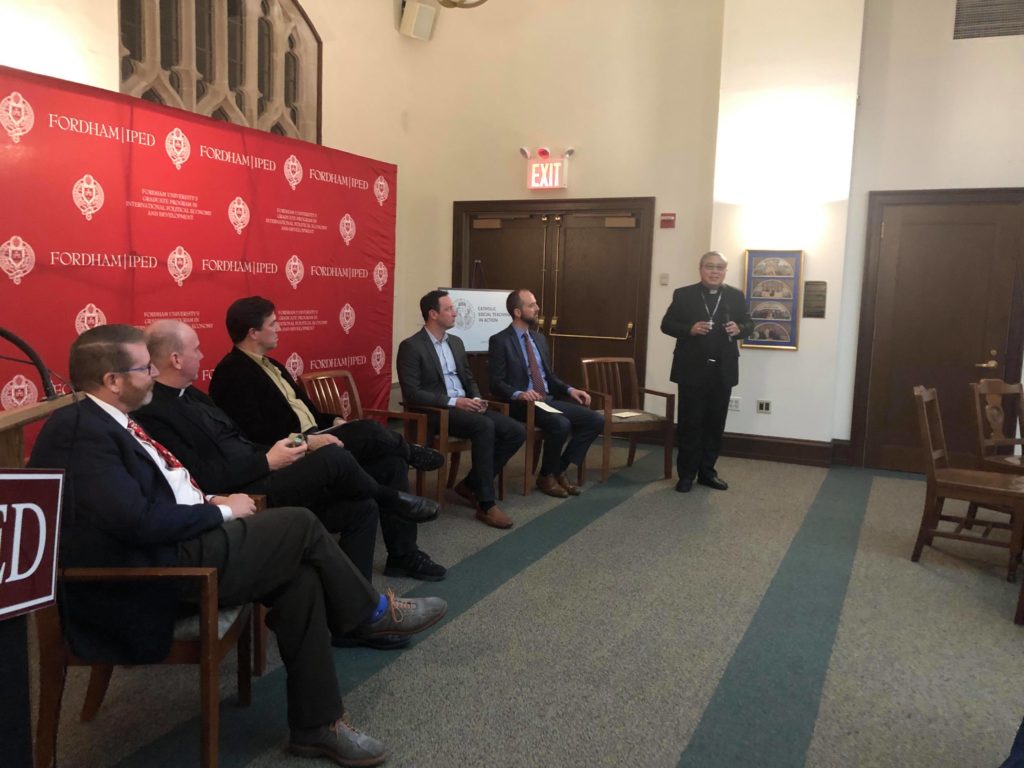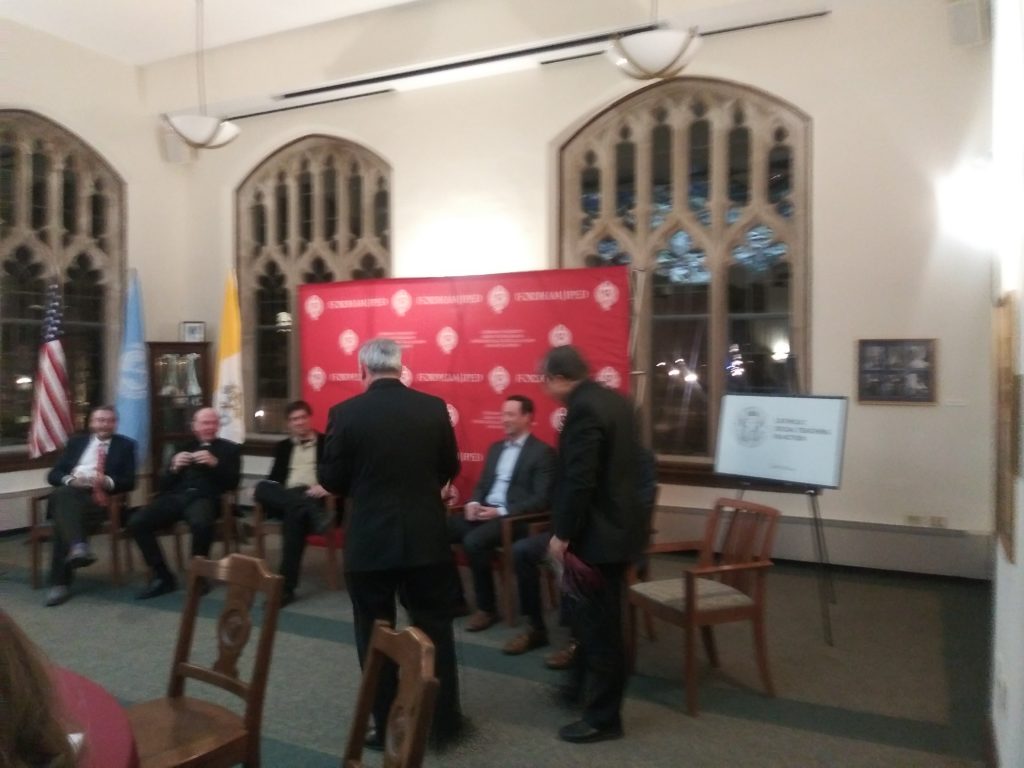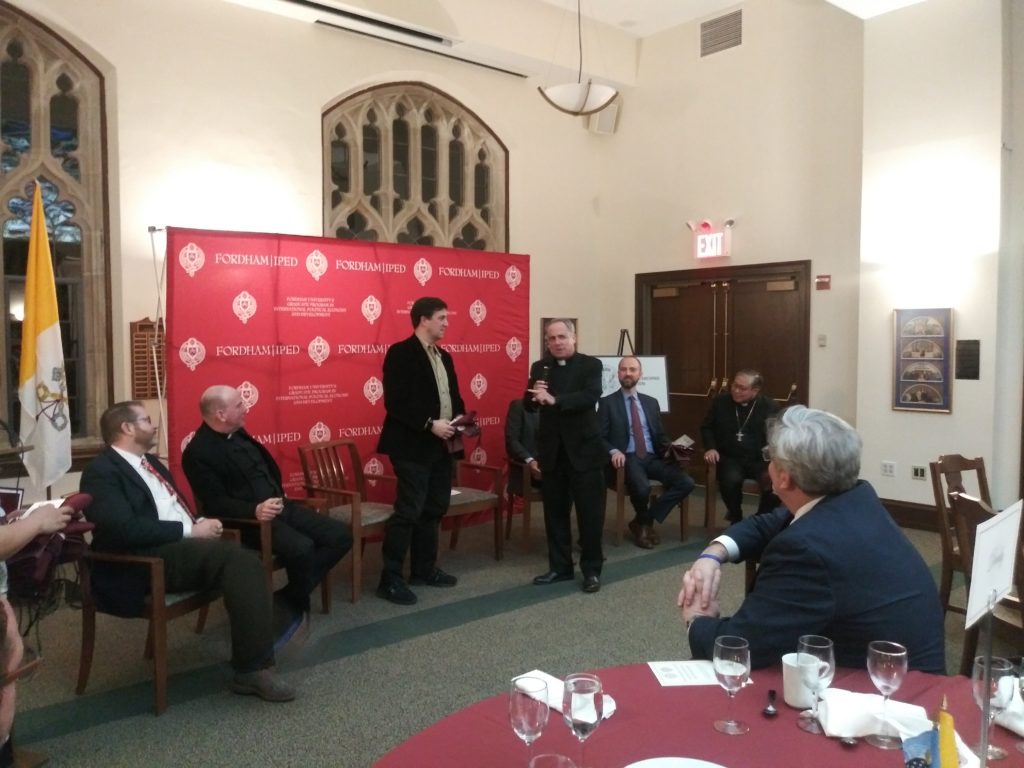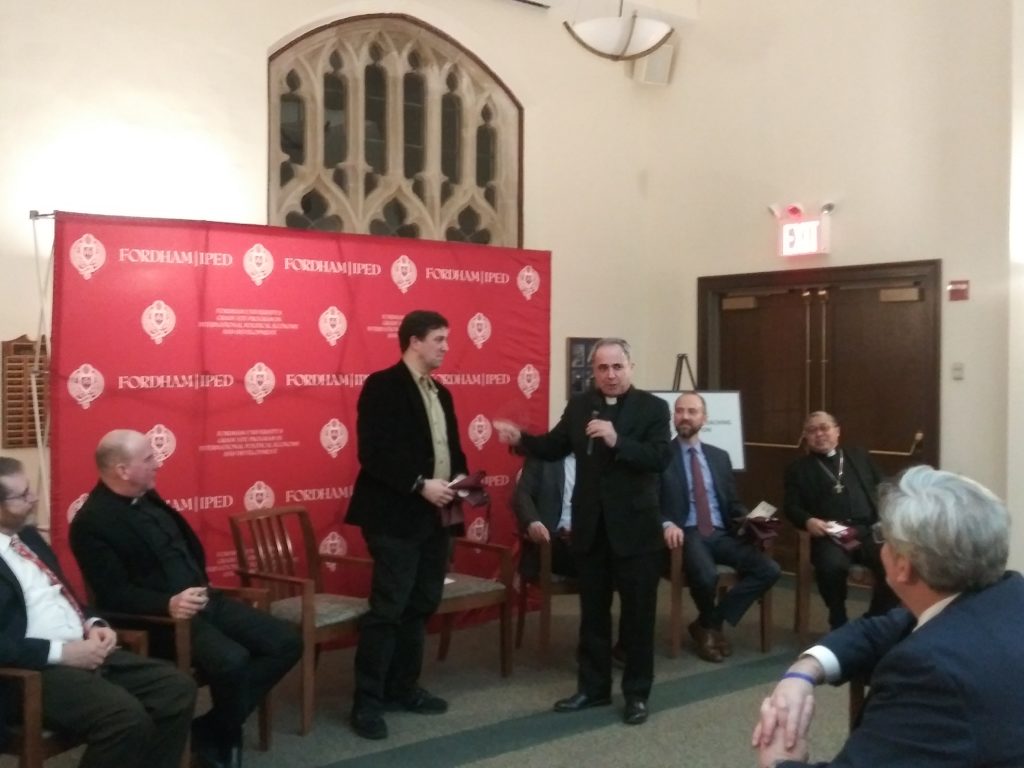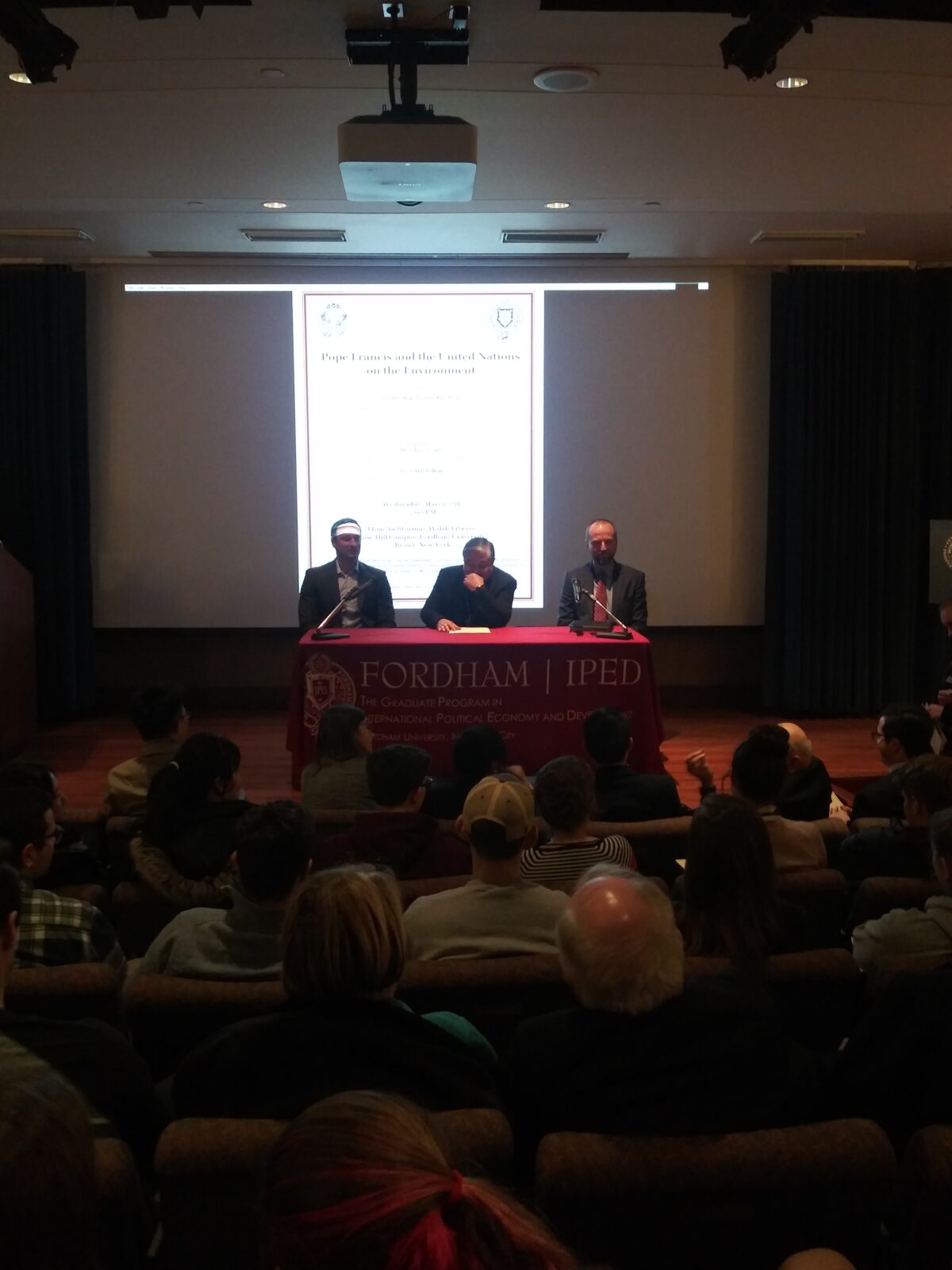
by: Paul Michael ’20 and Patrick Fernandez ’20
Last March 27, faculty and students gathered at Flom Auditorium to hear Archishop Auza’s address about the environmental concerns that face the world in 2019. The Archbishop opened his lecture by explaining how the magnitude of environmental issues and its consequences for all of humanity means that all levels of individuals, churches, and the international community must band together in a unified response to curb climate change.
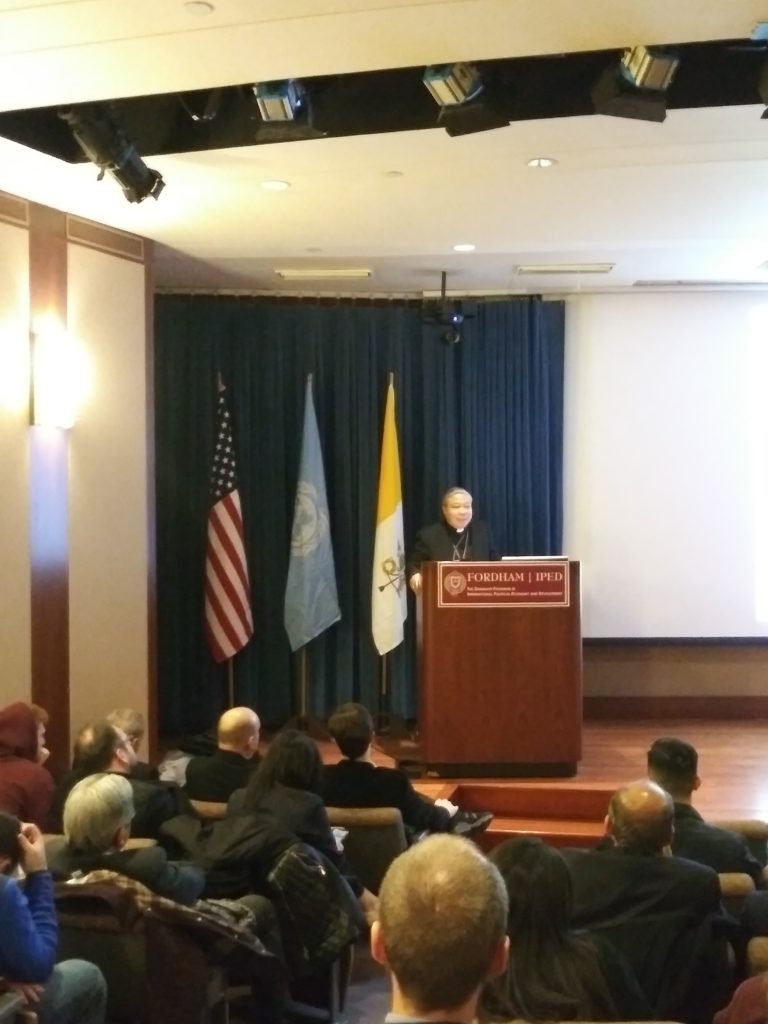
Throughout Auza’s lecture, one of the overarching themes was the interconnectedness of all people, the planet and our hopes of prosperity. Every living person is a stakeholder in the effort to preserve our planet for the sake of future generations. Auza explained this through the Catholic teaching of integrality. Every person is integral to making choices about their own consumption and environmental impact, because everyone faces the consequences of climate change.
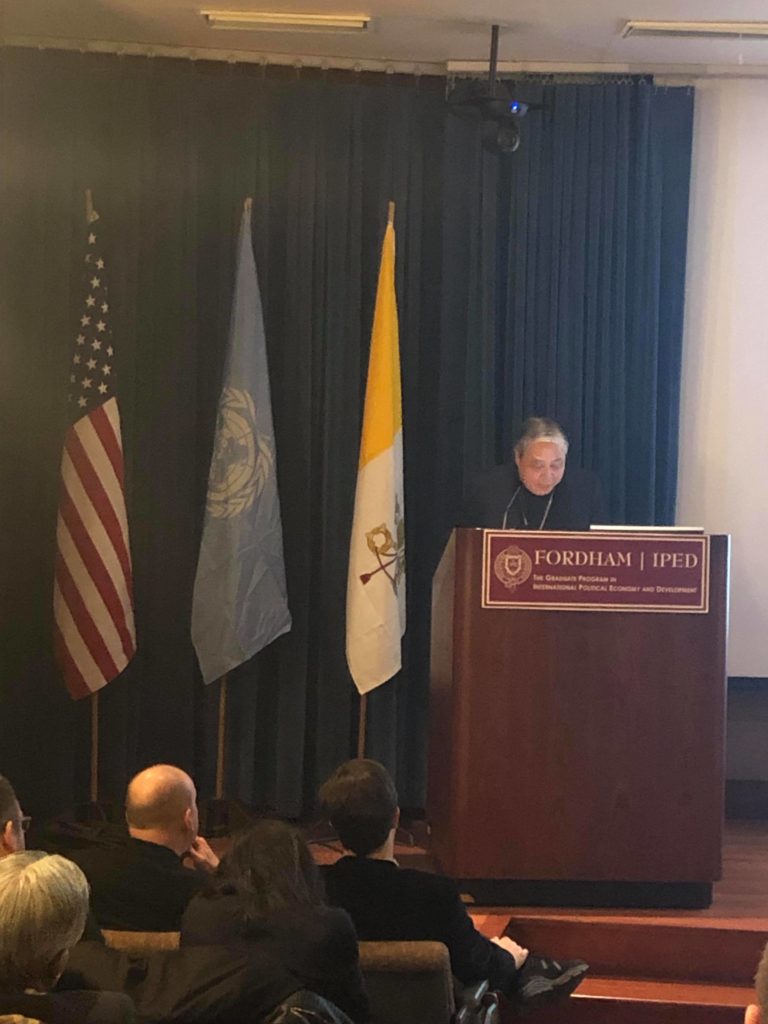
The Archbishop concluded this year’s lecture by emphasizing the moral nature of the environment issue. No one can rightfully claim to be exempt from responsibility for the future of our environment. Climate change is a moral issue in which all people are accountable for the type of world that we leave for future generations.
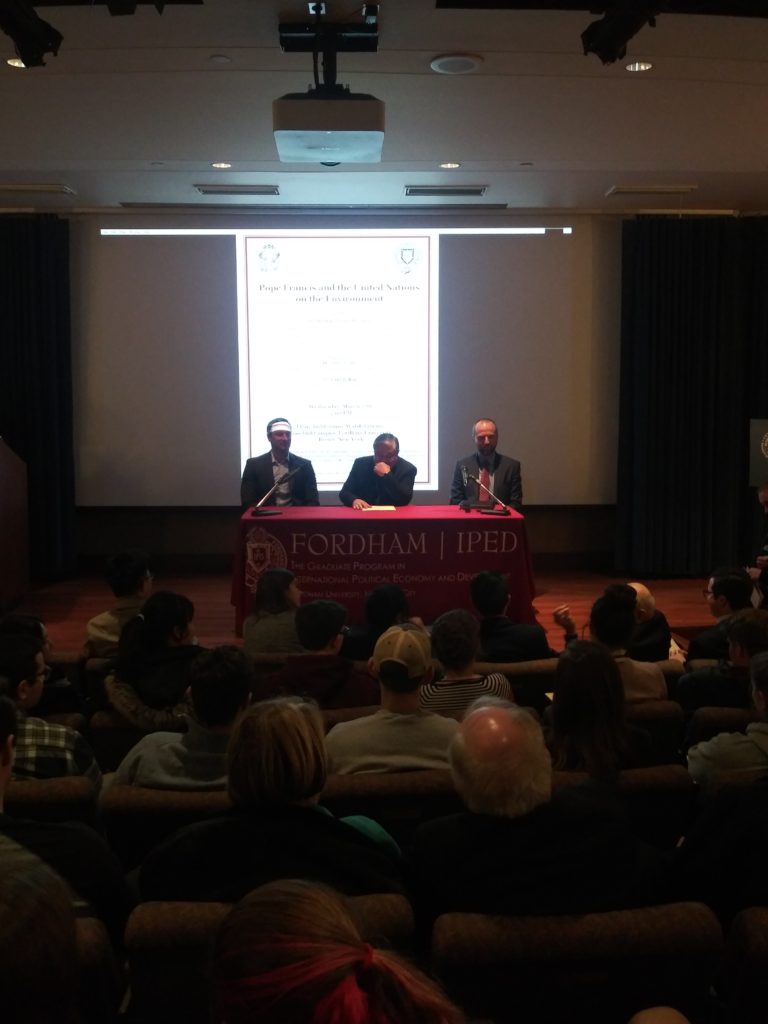
A response from Dr. Marc Conte of the Economics Department and Mr. Paul Wilkins then followed.
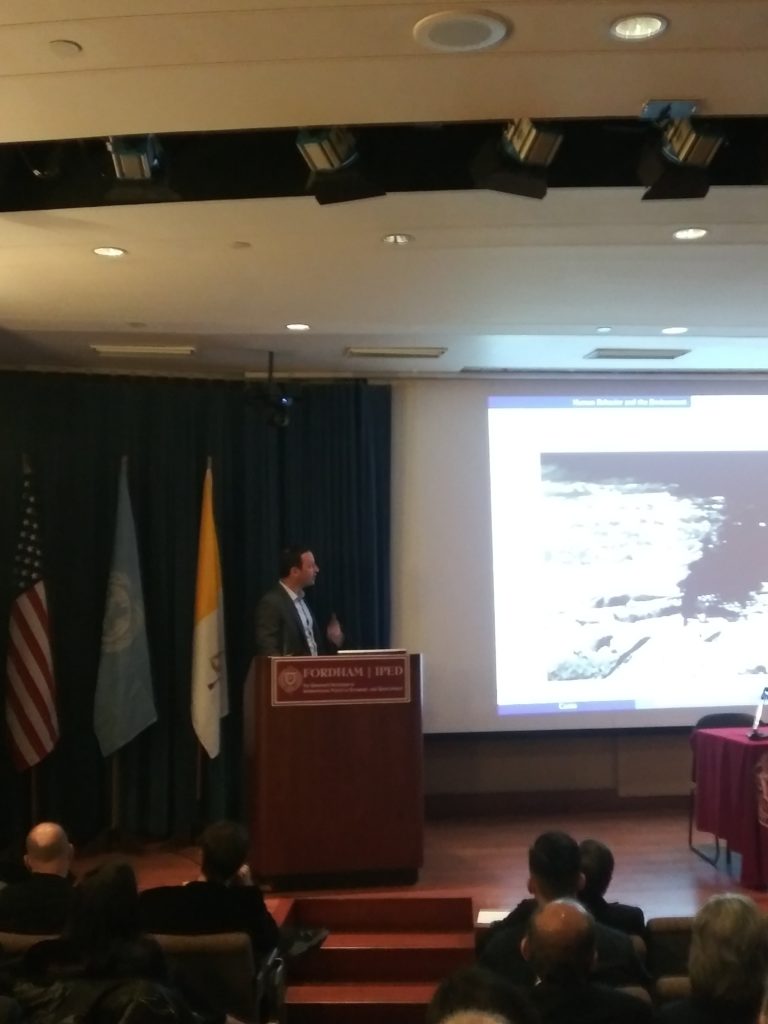
Dr. Conte provided a perspective on efforts that have been made within academic scholarship to accurately determine the economic costs of greenhouse gas emissions and climate change. Dr. Conte urged the audience to contribute to awareness of the social costs of carbon emissions so that individuals and societies can act more rationally in their economic choices.
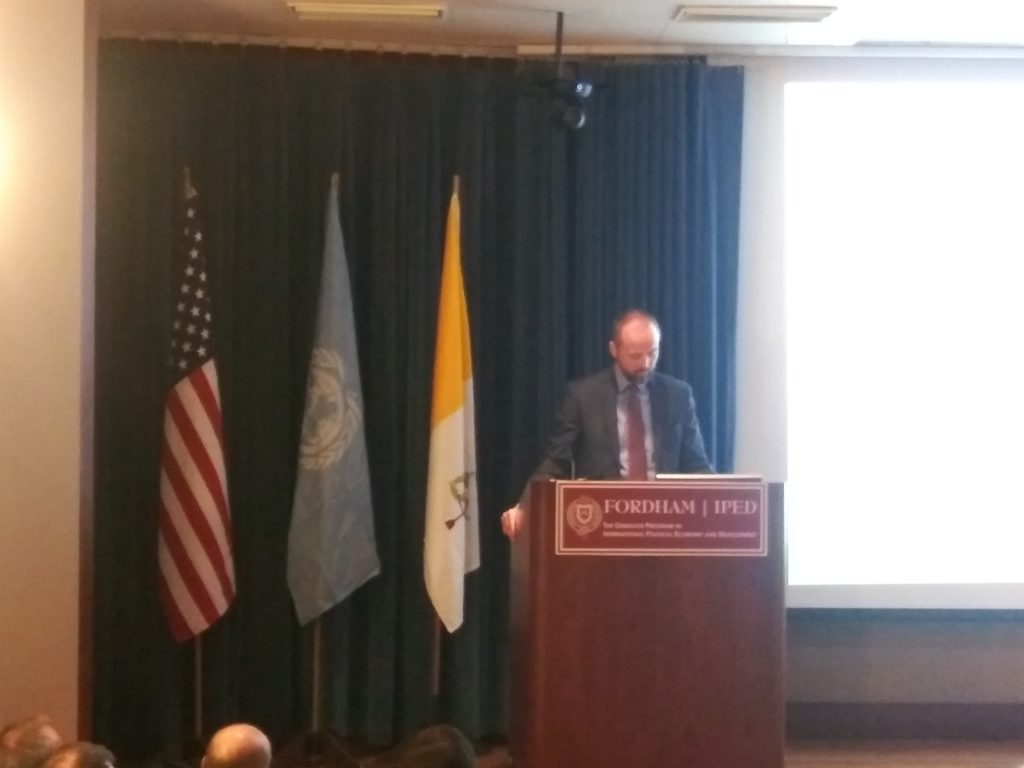
Mr. Wilkins gave a political perspective on the environmental challenge. He emphasized the need for a change of values from the historical position of skepticism about climate change. He stressed the need for continued individual and political action. He concluded his remarks on the hopeful note that institutions like Fordham University are raising leaders who can inspire the change of heart necessary for transformative environmental action.
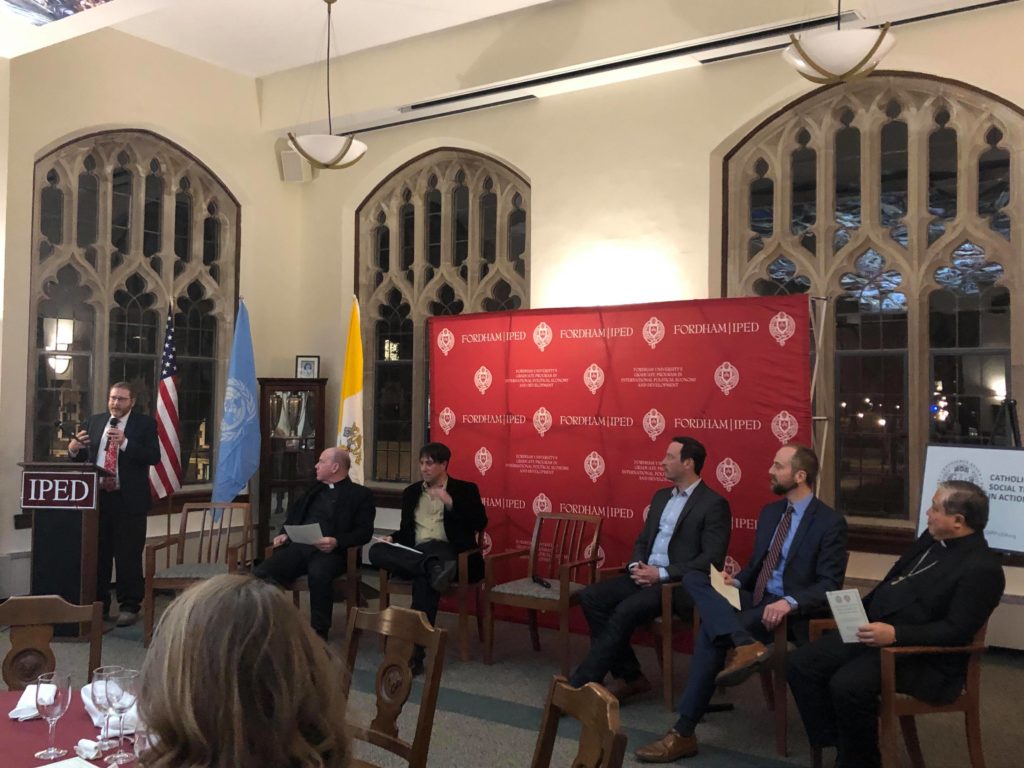
Dinner and cocktails soon followed at the Butler Commons in Duane Hall. There was also a panel with Dr. Alan Clark of the Department of Biological Sciences, Rev. Fr. John Cunningham SJ of the Department of Physics and Engineering Physics, and Dr. Stephen Holler of the Department of Physics and Engineering Physics. The panel was moderated by Dr. Henry Schwalbenberg, Director of the IPED Program.
Fr. Thomas Scirghi SJ, Rector of Fordham University, then gave gifts as a form of gratitude to the Archbishop, the respondents, and the panelists.

